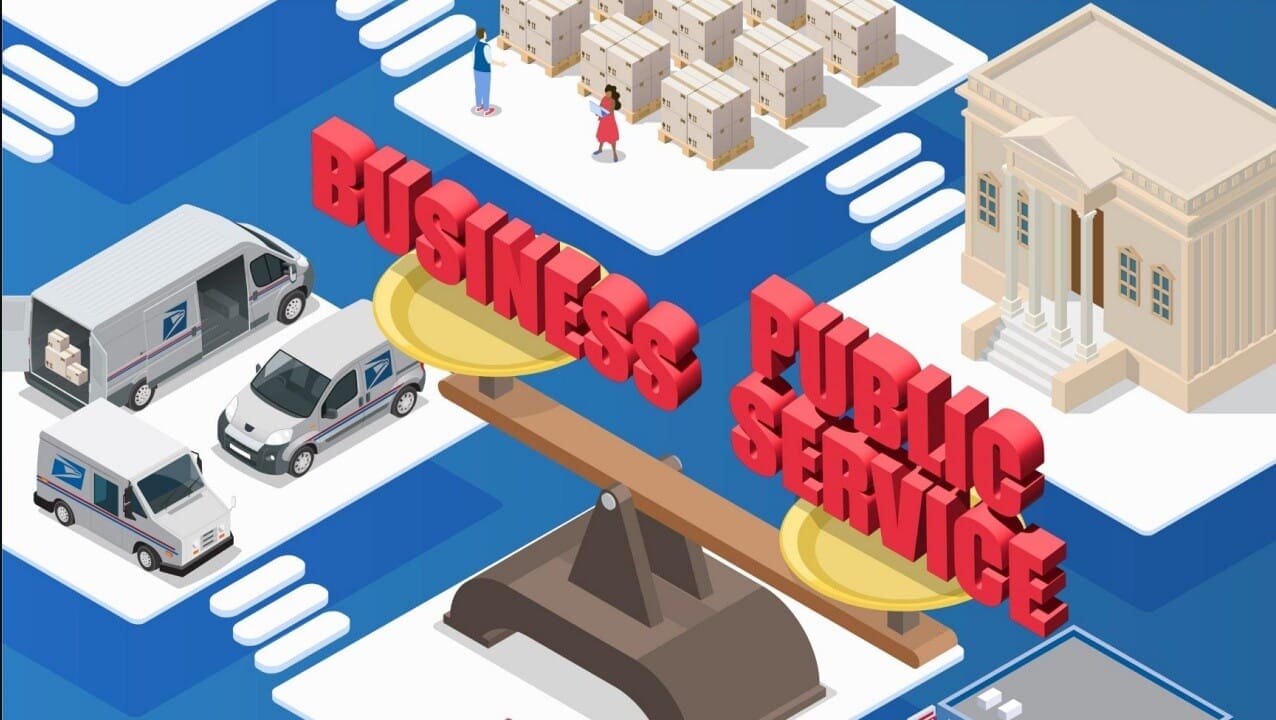- The Postal Service’s mission is to provide trusted and affordable universal service to the American public. While the agency operates with some of the flexibility of a private enterprise, it retains government ownership and civil service status for employees.
- Unlike nearly every other federal agency, USPS is structured to be self-funded with the vast majority of its funding through revenue from postage. The agency is supported by the longstanding mailbox and mail delivery monopolies rather than from appropriations from Congress.
- In recent decades, the steady decline in mail volume, substantial liabilities from health and retirement benefit programs, and growing competition in the package market have strained its financial sustainability.
- In this paper, we highlight the unique legal framework in which USPS operates to show how it impacts decision-making, finances, and operations, and how it differs from the private sector and other government agencies.
The Postal Reorganization Act (PRA) of 1970 entrusted the Postal Service with a mission to provide trusted and affordable universal service to the American public. Congress established the U.S. Postal Service as an independent agency that receives the vast majority of its funding through revenue from postage. It is supported by the longstanding mailbox and mail delivery monopolies rather than from congressional appropriations. Over the last few decades, however, the steady decline of mail volume, the substantial liability of health and retirement benefit programs and, recently, an increasingly competitive package market have strained USPS’s financial sustainability.
In this white paper, the U.S. Postal Service Office of Inspector General (OIG) reviewed the laws applicable to the Postal Service, highlighting the differences with the private sector and other government agencies. We identified the laws and regulations that have had the most substantial impact on USPS’s business decision-making, finances and operations, and discussed their implications.


Add your first comment to this post